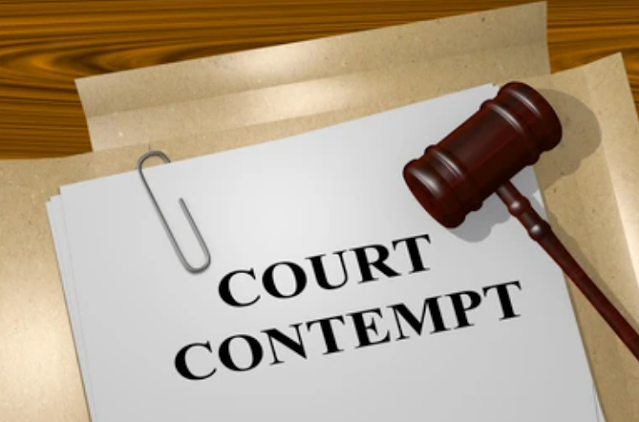Disobeying Court Orders
Disobeying Court Orders
Disobeying court orders can have serious legal consequences. When a court issues an order, it is legally binding, and failure to comply with the order can result in various penalties. Here's some information regarding disobeying court orders:
Contempt of court:
Disobeying a court order is often considered contempt of court. Contempt of court can be civil or criminal, depending on the jurisdiction and the severity of the violation. Civil contempt is usually intended to coerce compliance with the court order, while criminal contempt involves punitive measures for willful disobedience.
Penalties for contempt:
The penalties for contempt of court can include fines, imprisonment, community service, or other sanctions deemed appropriate by the court. The severity of the penalties will depend on the specific circumstances of the case, the nature of the violation, and the court's discretion.
Enforcing court orders:
If a party fails to comply with a court order, the other party can seek enforcement through legal means. This may involve filing a motion for contempt, requesting the court to take action against the non-compliant party. The court can then initiate proceedings to enforce the order and potentially impose penalties.
Modifying court orders:
In certain situations, if there are valid reasons for non-compliance, it may be necessary to seek a modification of the court order. If circumstances have substantially changed since the order was issued, a party can request the court to modify the terms to reflect the new situation. However, until a modification is granted, the existing court order remains in effect, and parties are generally expected to comply.
Legal recourse and remedies:
If a party has willfully disobeyed a court order, the aggrieved party may also have the right to pursue legal remedies. This can include seeking compensation for damages incurred due to the non-compliance or seeking an injunction to compel compliance.
It's important to consult with an attorney familiar with the laws and procedures in your jurisdiction if you believe someone is disobeying a court order. They can provide you with guidance on the best course of action and help protect your rights within the legal system.















No comments